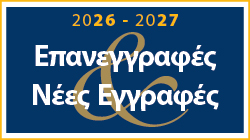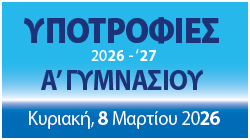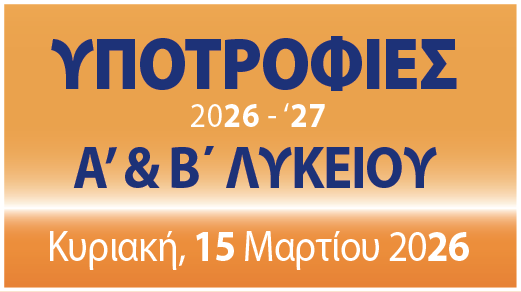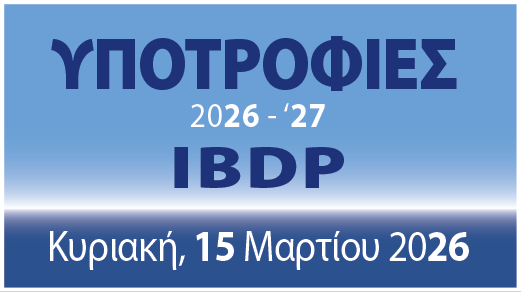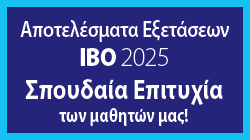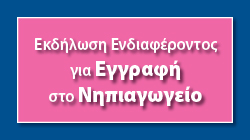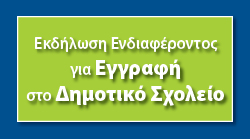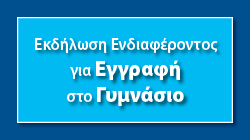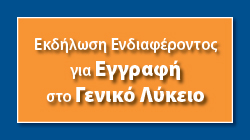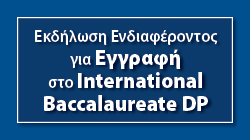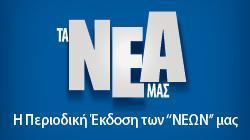Group 2: Language Acquisition
◉ Language B
• English Β (HL, SL)
• French B (HL, SL)
• German B (HL, SL)
◉ Language ab intio
• French ab initio (SL)
• Germanab initio (SL)
• Spanish ab initio (sl)
◉ Classical Languages
• Classical Greek (SL)
1. THE NATURE OF THE COURSE
• The study of Classical languages encourages students to develop awareness and appreciation of the different perspectives of people from ancient cultures, an aim very much in keeping with a key strand of TOK. This provides other opportunities for ways of seeing and knowing both the ancient and contemporary world leading to a greater understanding of the contemporary world and to a greater intercultural understanding.
• The study of classical languages is inherently international. Students will study the language, literature and civilization of peoples separated from them by time and space, and will engage with different social, moral, ethical, cultural and aesthetic attitudes. They will also become confident communicators, more aware of the power and beauty of language, and open-minded, as they question their own values in the light of other languages and cultures.
2. AIMS - ASSESSMENT OBJECTIVES
• Enable the student to reach an appropriate level of knowledge and understanding of the language and to use this understanding for a variety of purposes, including translation, comprehension and research.
• Develop the student’s appreciation of the literary merit of classical texts and an awareness of the issues raised in them, as well as their connections and relevance to our times.
• Encourage, through the study of texts and other products of classical cultures, an awareness and appreciation of the different perspectives of people from those cultures.
• Provide the student with an opportunity for intellectual engagement through the process of inquiry and the development of critical thinking and learning skills.
• Provide the student with a basis for further study, work and enjoyment in a variety of contexts.
3. ASSESSMENT OUTLINE (SL)
1. External assessment (80%)
• Paper 1 (1 hour 15 minutes) ==> 35%
Translation of one extract from a prescribed author.
• Paper 2 (1 hour 30 minutes) ==> 45%
Questions based on 10 extracts, 2 from each option. Students answer questions on three extracts from two options.
2. Internal assessment (20%)
• Individual study - Research dossier ==> 20%
• An annotated collection of seven to nine primary source materials relating to a topic in classical history, literature, language, religion, mythology, art, archeology or some aspect of classical influence.
• This component is internally assessed by the teacher and externally moderated by the IB at the end of the course.
English B
Each student is required to study a second language. The degree to which a student is already competent in the language and the degree of proficiency they wish to attain by the end of the period of study, are the most important factors in identifying the appropriate course. Another important consideration is that the course should be a challenging educational experience for the student.
Students with some background in a second language (minimum ΙΒ entry requirement: B2 level) may choose to continue with that language at either Language B Higher Level or Standard Level. Students who are near-native, or bilingual, may study English as a Language A course. The latter courses are at an appropriately high level and they contain a significant literature element.
LANGUAGE B: HIGHER AND STANDARD LEVEL
The main focus of the Language B course is on language acquisition and development of language skills. While acquiring the language, students will also explore the culture(s) connected to it through the study and use of a range of written and spoken material.
The syllabus approaches the learning of language through meaning-making. The study of the core and the options at HL and SL, plus two literary works at HL, will allow the students to build the necessary skills to reach the assessment objectives of the course through the expansion of their receptive, productive and interactive skills.
HL and SL are differentiated by the number of teaching hours, the depth of syllabus coverage, the study of literature at HL, and the level of difficulty and demands of assessment and assessment criteria.
To be more specific:
The core - with topics common to both levels - is divided into three areas and is a required area of study:
Communication and media
Global issues
Social relationships
In addition, at both HL and SL, teachers select two from the following five options:
Cultural diversity
Customs and traditions
Health
Leisure
Science and technology
Also, at HL, students study two works of literature.
EXTERNAL ASSESSMENT: 70%
Paper 1 (1 hour 30 minutes): Receptive skills 25%
Text-handling exercises on four(SL) or five(HL) written texts, based on core.
Paper 2 (1 hour 30 minutes): Written productive skills 25%
SL: One writing exercise of 250–400 words from a choice of five, based on the options.
HL: Two compulsory writing exercises.
Section A: One task of 250–400 words, based on the options, to be selected from a choice of five. Section B: Response of 150–250 words to a stimulus text, based on the core.
Written assignment: Receptive and written productive skills 20%
SL: Intertextual reading followed by a written exercise of 300–400 words plus a 100-word rationale, based on the core.
HL: Creative writing of 500-600 words plus a 150-word rationale, based on one of the literary texts read.
INTERNAL ASSESSMENT: 30%
Internally assessed by the teacher and externally moderated by the IB.
Individual oral (8-10 minutes) 20%
Based on the options: 15 minutes’ preparation time and a 10-minute (maximum) presentation and discussion with the teacher.
Interactive oral activity 10%
Based on the core: Three classroom activities assessed by the teacher.
Every Language B course will be focusing on the analysis of the target culture(s), using original material and aiming at intercultural understanding. Below you can view a sample curriculum for French B.
French B - Français B
French B (Français B) est un cours de français langue étrangère s’adressant à des élèves ayant un niveau B2 du Cadre Européen Commun de Référence. Ils vont s’approprier la langue tout en développant des compétences réelles de compréhension des écrits, des oraux, expression des écrits, des oraux. Le cours va mettre l’accent sur l’inter culturalité entre la langue cible et la langue maternelle la prise de conscience de la diversité culturelle, la faculté de mieux comprendre le monde dans lequel les jeunes vivent. Ils vont travailler de sorte que la langue leur serve ultérieurement dans leurs loisirs, leurs études, leur profession.
Un large éventail de matériel (articles de presse, sur Internet, clips chanson, films, extraits littéraires, deux œuvres littéraires …) sera exploité à ces fins. Les élèves seront encouragés à comprendre, analyser, réagir à ce matériel, à utiliser une langue correcte, adaptée à différents contextes, à organiser leurs idées de façon structurée et convaincante en français.
L’évaluation des élèves sera menée selon les grilles et les critères prévus par le guide concernant la langue B.
1. Le cours va couvrir 3 domaines :
Communication et médias
questions mondiales et
Relations sociales.
Les élèves vont aussi aborder
2 options: Loisirs et
Coutumes et traditions.
En ce qui concerne la langue, les élèves vont travailler sur les modes indicatif, subjonctif et conditionnel, l’expression de la cause, de la conséquence, du but, de l’opposition, de la concession, de l’hypothèse, la voix passive, le discours rapporté, le vocabulaire regroupé en champs sémantiques, les techniques d’expression des idées et des sentiments.
Les élèves seront amenés à comprendre à l’écrit des articles, des extraits littéraires, des paroles de chanson, des publicités…, à produire à l’écrit des articles, des participations à des blogs, des critiques, des dissertations, de la correspondance, des interviews… à comprendre à l’oral des documents audiovisuels (chansons, publicités, reportages, informations, longs métrages…) à produire à l’oral des participations à des débats, des prises de parole dans des contextes divers…
2. Assessment:
Evaluation externe: écrits: 70% de la note.
Epreuve 1: Compétences réceptives (lecture interactive sur 4 textes écrits qui se rapportent au tronc commun) 25%
Epreuve 2: compétences productives à l’écrit (rédaction basée sur les options) 25%
Travail écrit (lecture intertextuelle + rédaction sur le tronc commun) 20%
Evaluation interne: oraux: 30% de la note.
Epreuve 1: Compétences interactives (oral individuel sur les options) 20%
Epreuve 2: oral interactif, activités en classe sur le tronc commun: 10%
Les élèves auront également un dossier personnel (portfolio) dans lequel figureront tous leurs travaux écrits.
3. Matériel utilisé à titre indicatif:
- Le Monde en français, éd. advance materials
- Clés pour la France, en 80 icônes culturelles, éd. Hachette
- Les 500 exercices de grammaire B2, éd. Hachette
- Entre les murs livre de François Bégaudeau 2006, éd. Folio
- Entre les murs film de Laurent Cantet 2008
- Jean de Florette de Marcel Pagnol, éd. De Fallois, film de Claude Berri (1986)
- Articles de presse et de sites web, chansons et vidéos…


